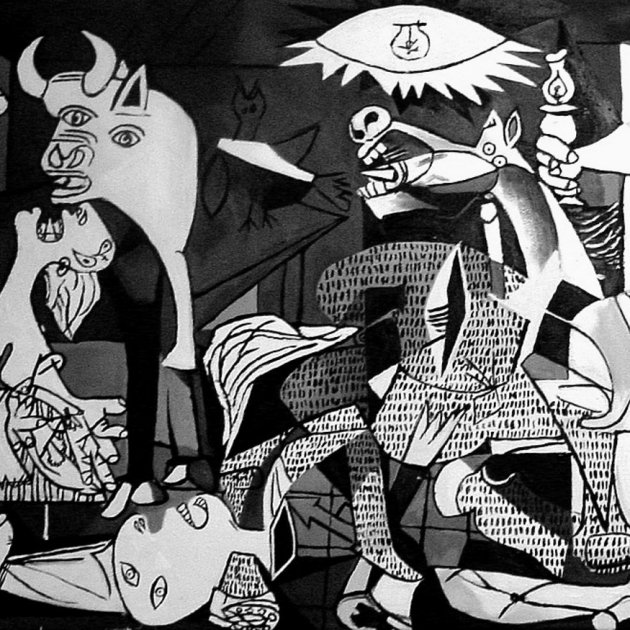The Ukrainian city of Mariupol has been completely laid waste by the bombs and missiles of Vladimir Putin's Russia. There is practically nothing left standing. But it is not a unique case in history. In his speech by video conference to Spain's Congress of Deputies on Tuesday, president Volodymyr Zelensky wanted to bring home to the Spanish people and politicians what his country is going through. And that's why he used a comparison: "It's April 2022, but it looks like it's April 1937 when everyone was talking about one of your cities, Gernika." The Ukrainian leader also took the opportunity to name some Spanish names: companies such as Porcelanosa and Maxam (explosives sector), which have not stopped their activity in Russia. Zelensky's speech was applauded by all parties except the deputies of the CUP, the BNG and Enrique Santiago (Unidas Podemos).
The Ukrainian leader focused especially on Mariupol, because of the carnage that has taken place there, which he compared with that of the Nazi air force attack in April 1937 which completely destroyed the city of Gernika, in the Basque Country. The terror of that Spanish Civil War attack became a universal symbol for the horrors of war, after Picasso painted his work Guernica. In this regard, Zelenski recalled how the people who remain in Mariupol have been left without food and medicine and amidst an entire city destroyed. "Only ruins remain. 90% of the buildings have been demolished," he said. He denounced how the invading army bombed buildings, such as the theatre, where they knew that people were sheltering. "Russia is not looking for peace seriously, and the worst thing is that we do not know how long the war will last," he warned.
He also referred to the case of Butxa, where "crimes against humanity" had been committed, and said that those responsible should be tried before the International Criminal Court. Zelensky reminded Spanish parliamentarians that Russia brought war to Ukraine long before February 24th. "We have been defending our country from war since 2014, since the occupation of Crimea and the Donbas," he said. "What would the destruction of Russian weapons mean? The possibility of living without dictatorship, without state violence, in an open democracy, the possibility of coexistence in peace," he added.
In the face of this, the president of the Ukrainian government urged Spain and the European Union as a whole to continue to keep applying "strong sanctions" against the Kremlin. In this sense, he thanked many Spanish companies for ceasing their activity in Russia. But he also called on other big companies to "stop doing business with Russia." He cited Porcelanosa, Sercobe and Maxam.
Spain's lower house had been set up so that senators could also attend. The chamber, completely full, watched and listened to the speech on television screens. In the parliament's guest gallery were the ambassador and consuls of Ukraine, the ambassadors of the member states of the European Union and NATO, representatives of the Ukrainian community in Spain, as well as people temporarily displaced from Ukraine.
The only ones who did not applaud the Ukrainian president were the CUP deputies Mireia Vehí and Albert Botran; Unidas Podemos MP Enrique Santiago, who is secretary general of the PCE and secretary of state for the 2030 Agenda, and the BNG deputy, Néstor Rego. Vehí and Botran also did not sign a proposal for an institutional declaration that some groups sought to move, which was not possible due to a lack of consensus.
Sánchez reiterates the commitment
The session was opened by the speaker of the house, Meritxell Batet, who told Zelensky that the Spanish people "in their totality" are with the Ukrainian people and "share their pain and suffering." The Spanish prime minister, Pedro Sánchez, spoke at the end, taking up the thread begun by the Ukrainian leader: "The history of Spain has been full of difficult times. You have referred to some of them in which freedom was endangered and even liquidated for many decades, but the efforts of Spaniards have always succeeded in restoring this democracy and this freedom." The Socialist politician said that Spain's commitment to Ukraine was "firm" and that the Spanish state would continue to provide humanitarian aid, financial assistance and military equipment "so that Ukraine can exercise its right to legitimate defence". He has also promised to support the country's accession to the European Union.
Main image: Pablo Picasso's 'Guernica'
